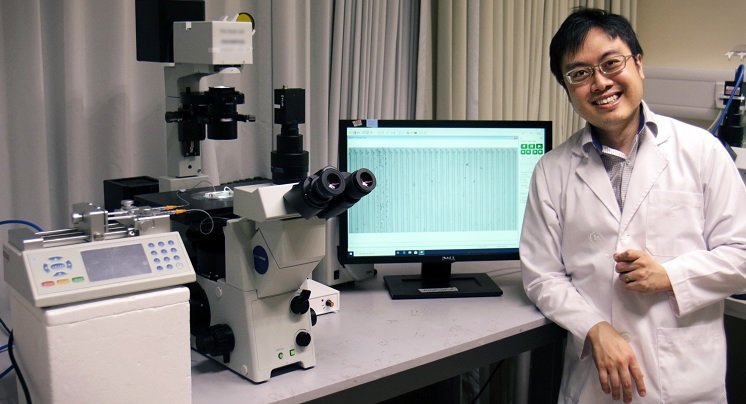
Photo Credit: Singapore-MIT Alliance for Research and Technology (SMART)
Researchers from Critical Analytics for Manufacturing Personalized-Medicine (CAMP), an Interdisciplinary Research Group (IRG) at the Singapore-MIT Alliance for Research and Technology (SMART), MIT’s research enterprise in Singapore, have developed a new label-free immune profiling assay that profiles the rapidly changing host immune response in case of infection, in a departure from existing methods that focus on detecting the pathogens themselves, which can often be at low levels within a host.
This novel technology presents a host of advantages over current methods, being both much faster, more sensitive and accurate.
In cases of acute infection, the status of a patient’s immune response can often be volatile and may change within minutes. Hence, there exists a pressing need for assays that are able to rapidly and accurately inform on the state of the immune system. This is particularly vital in early triage among patients with acute infection and prediction of subsequent deterioration of disease.
In turn, this will better empower medical personnel to make more accurate initial assessments and deliver the appropriate medical response. This can ensure timely intervention in the emergency department (ED) and prevent admission to the intensive care unit (ICU).
The new assay developed by SMART researchers focuses on profiling the rapidly changing host inflammatory response, which is a hyper-aggressive state, can lead to sepsis and death.
A 15-minute label-free immune profiling assay from 20 µL of unprocessed blood using unconventional L and inverse-L shaped pillars of DLD microfluidic technology was developed, functioning as a sensitive and quantitative assay of immune cell biophysical signatures in relation to real-time activation levels of WBCs. As WBCs are activated by various internal or external triggers, the assay can sensitively measure both the extent and direction of these changes, which in turn reflect a patient’s current immune response state.
Image Caption: Experiment setup with Dr Kerwin Kwek for the profiling of immune cells using the microfluidic DLD assay




